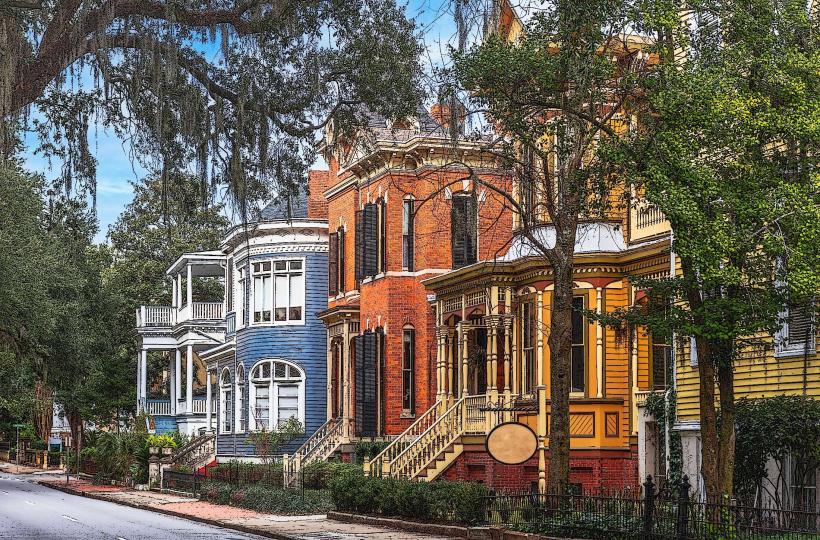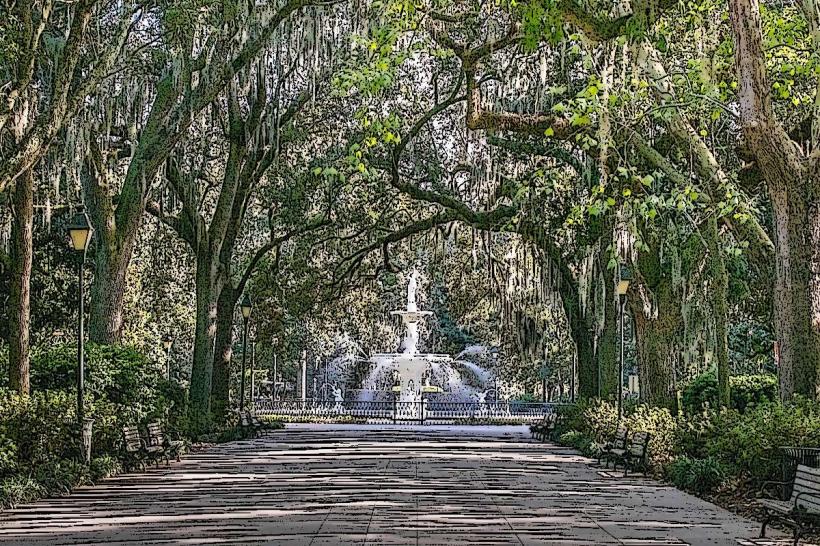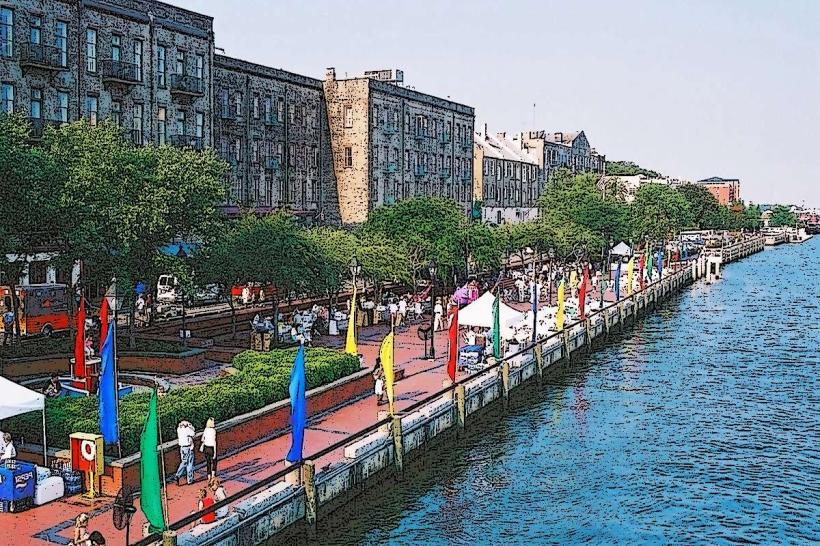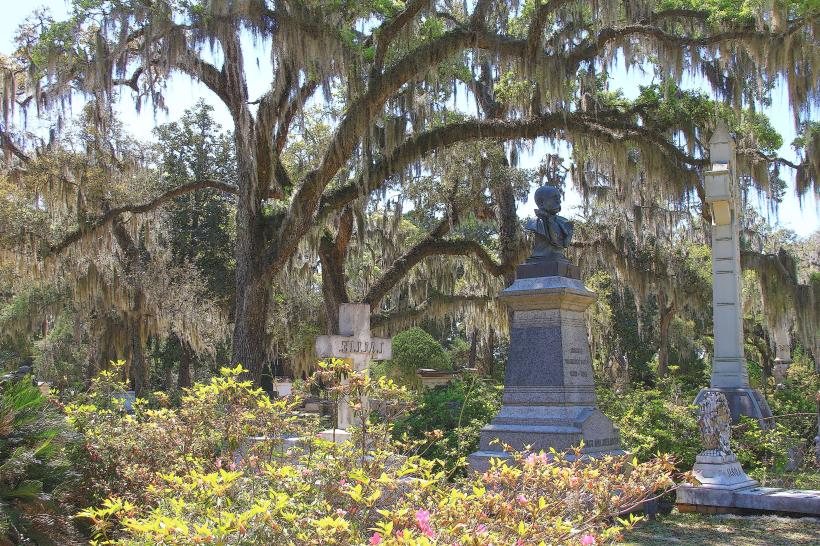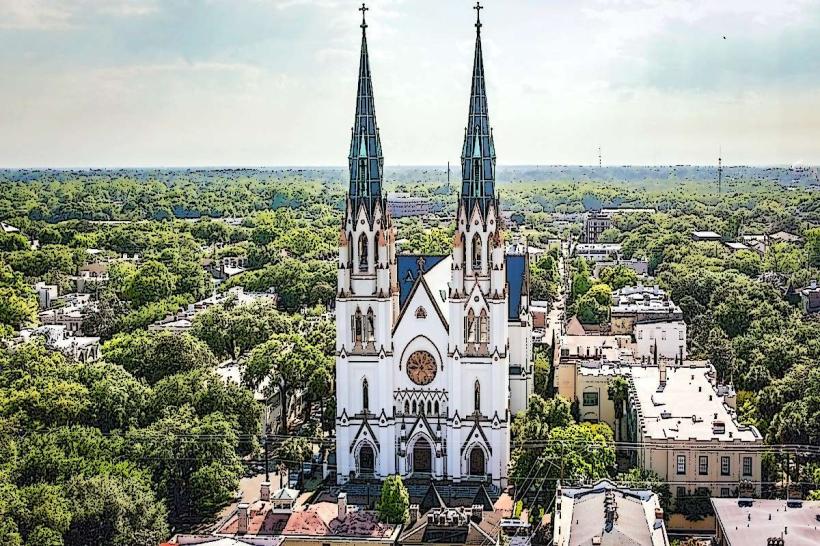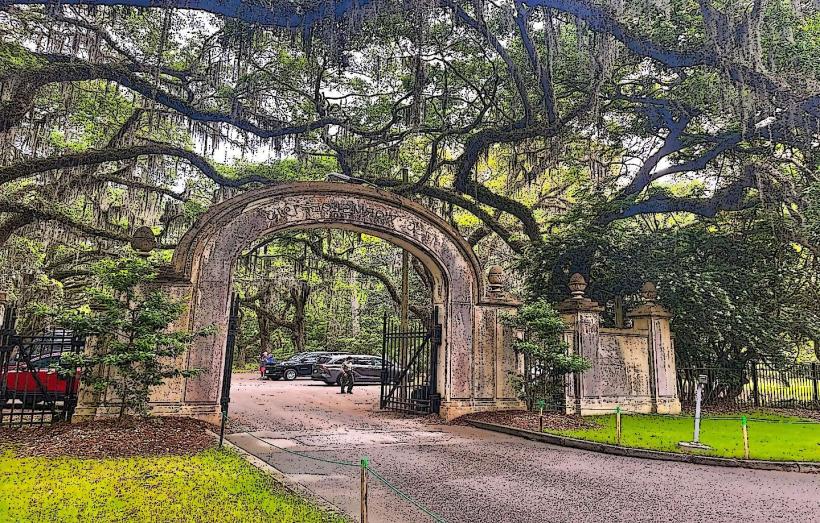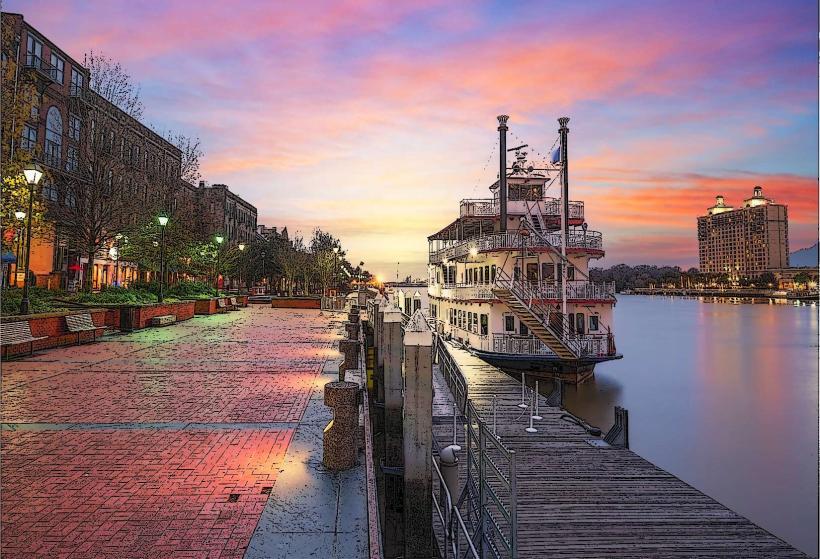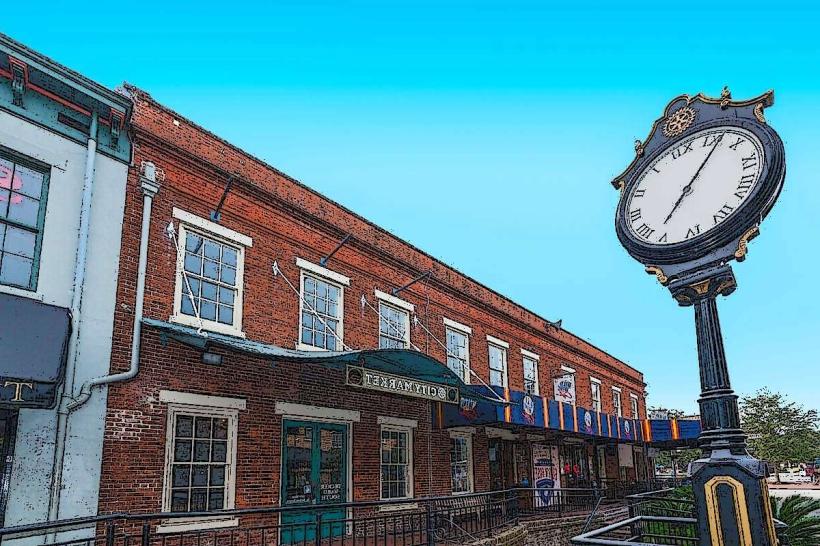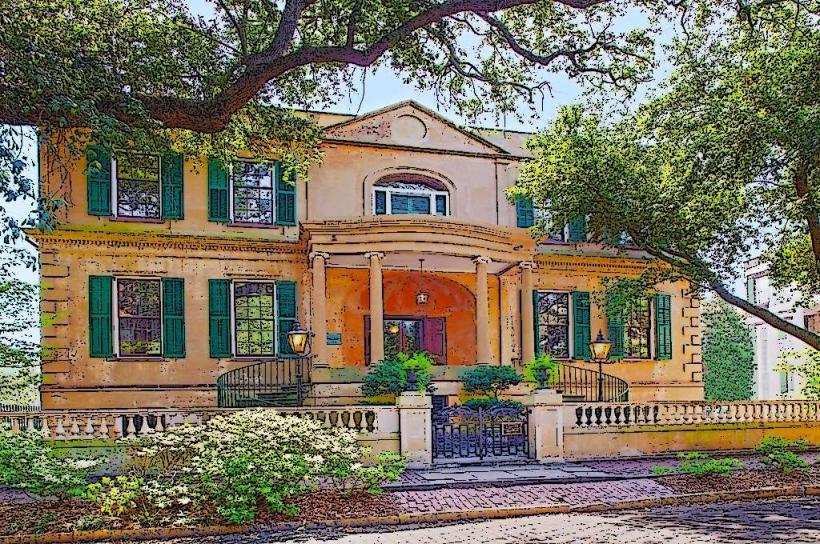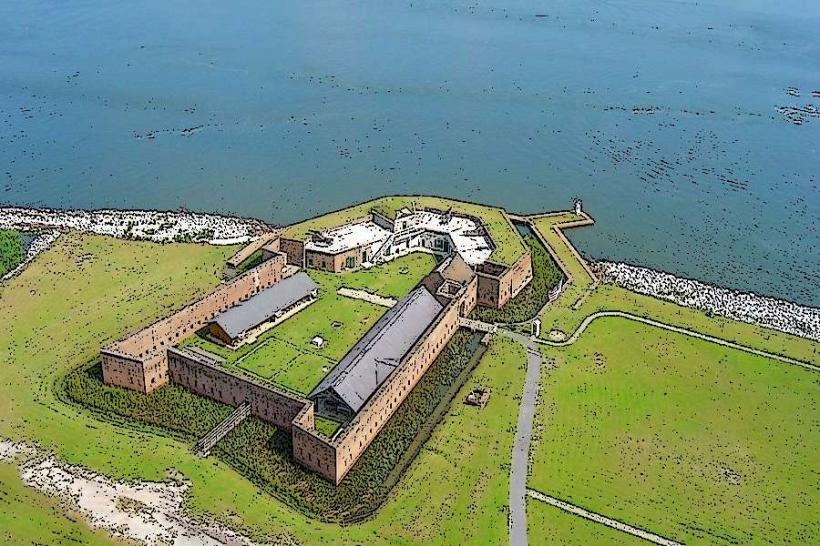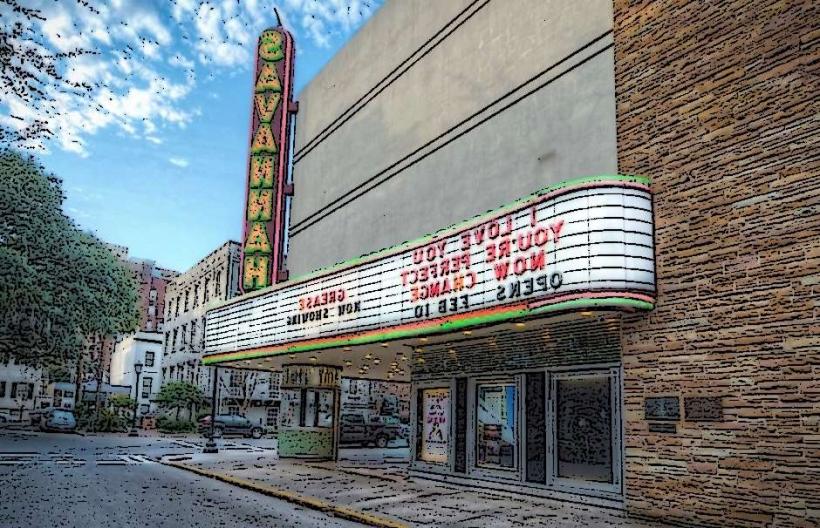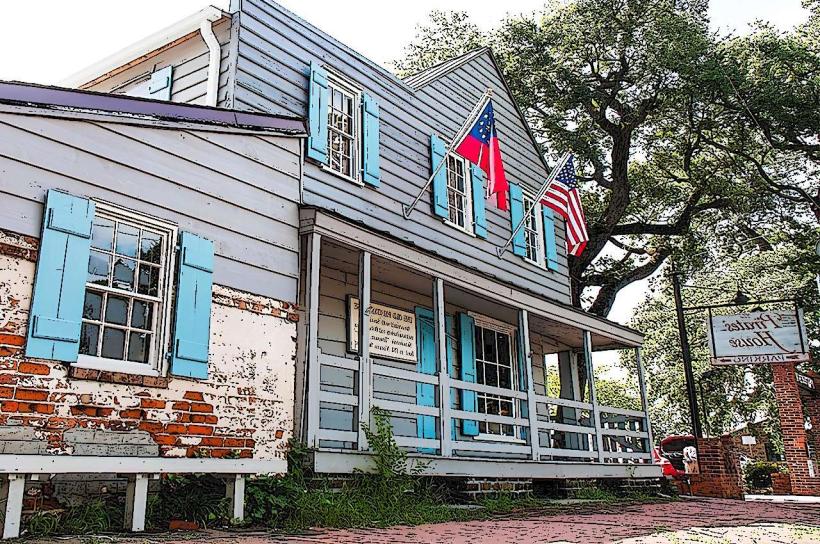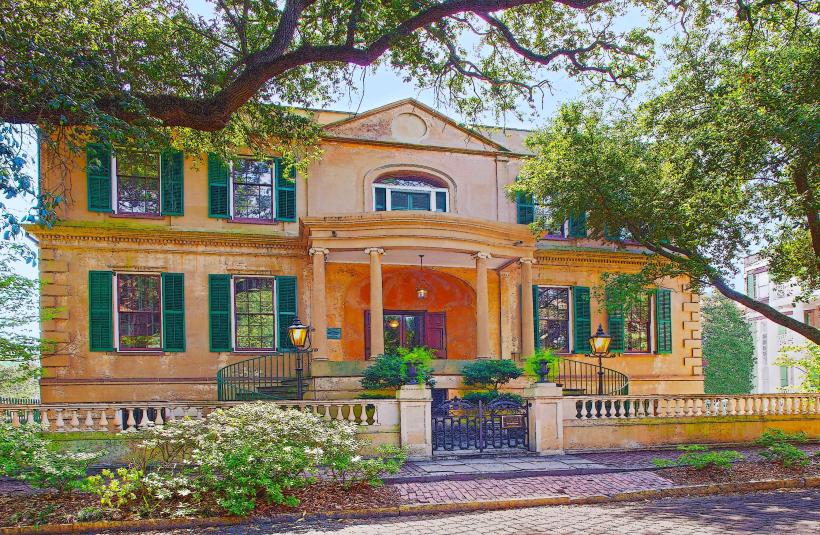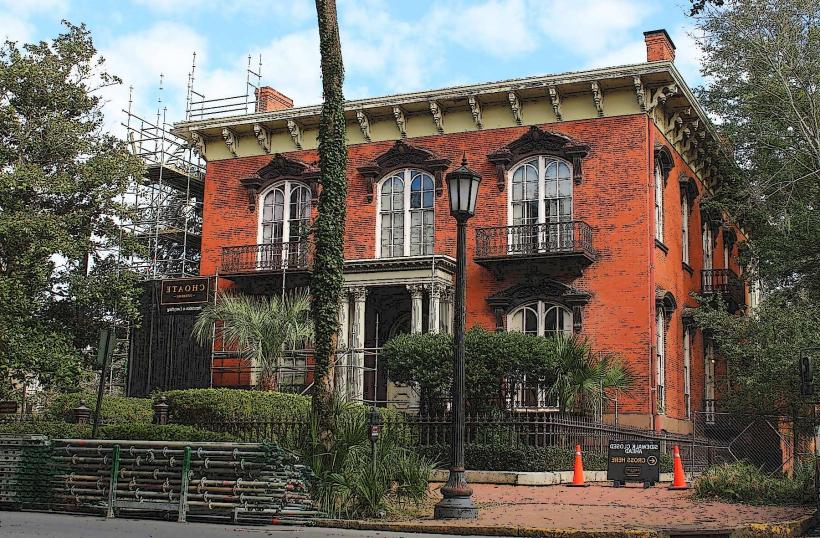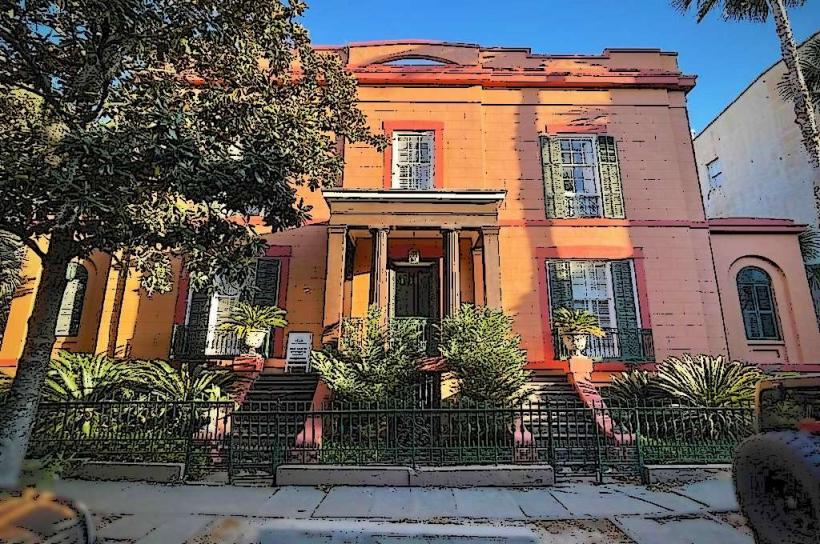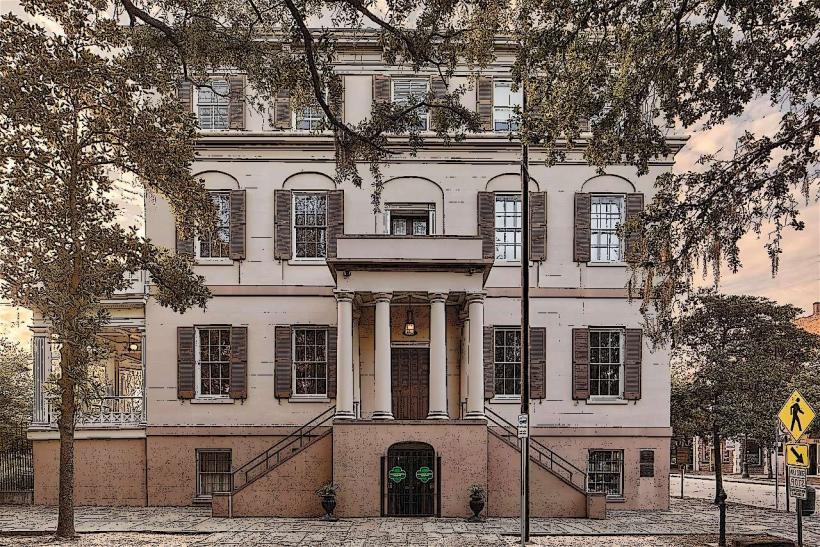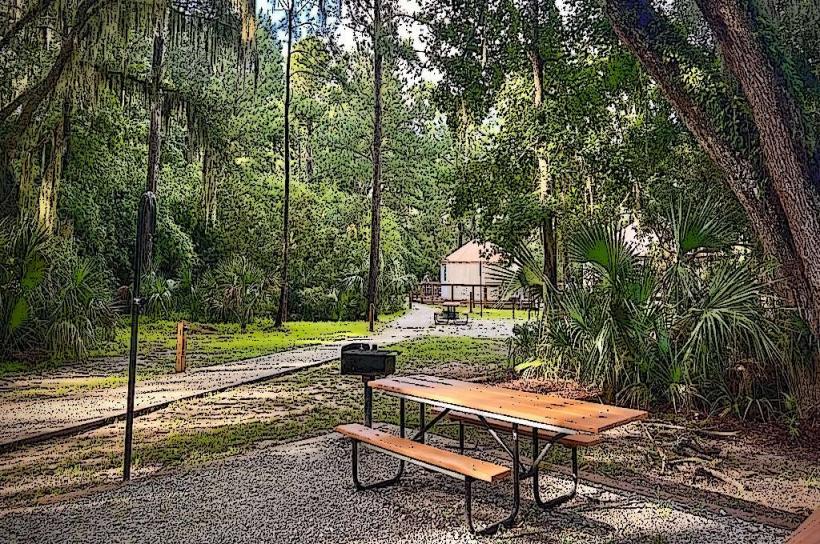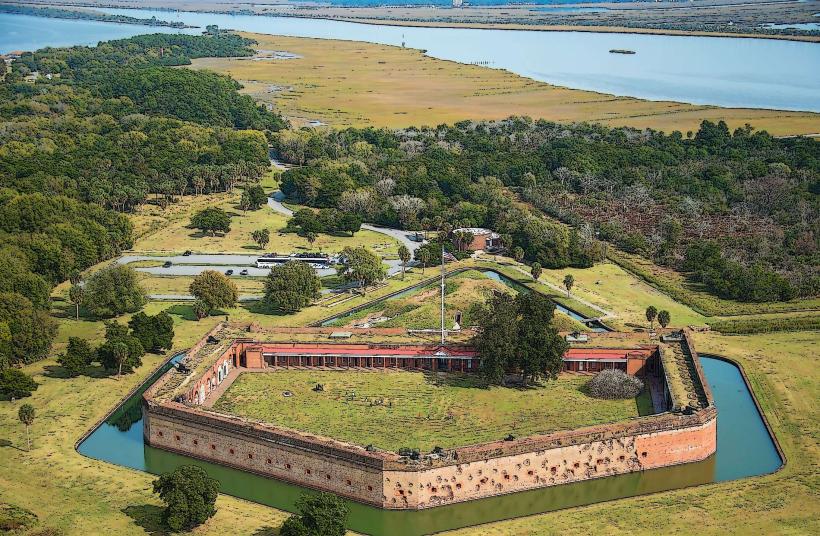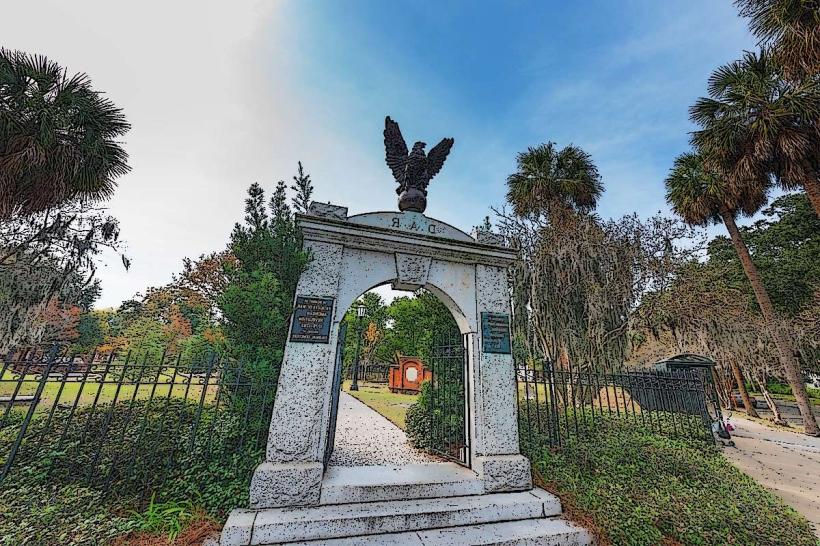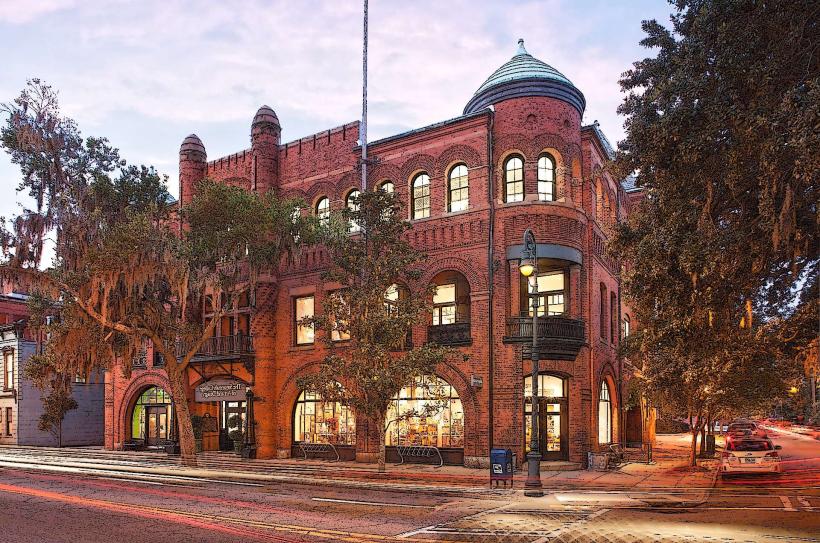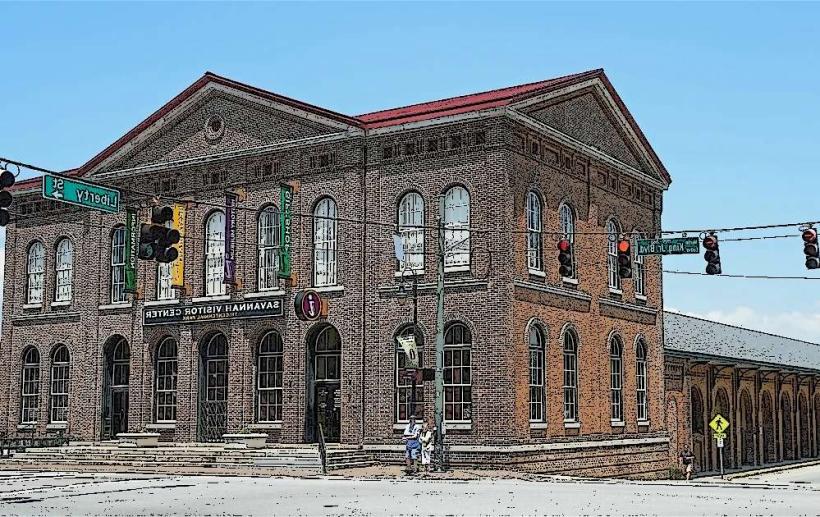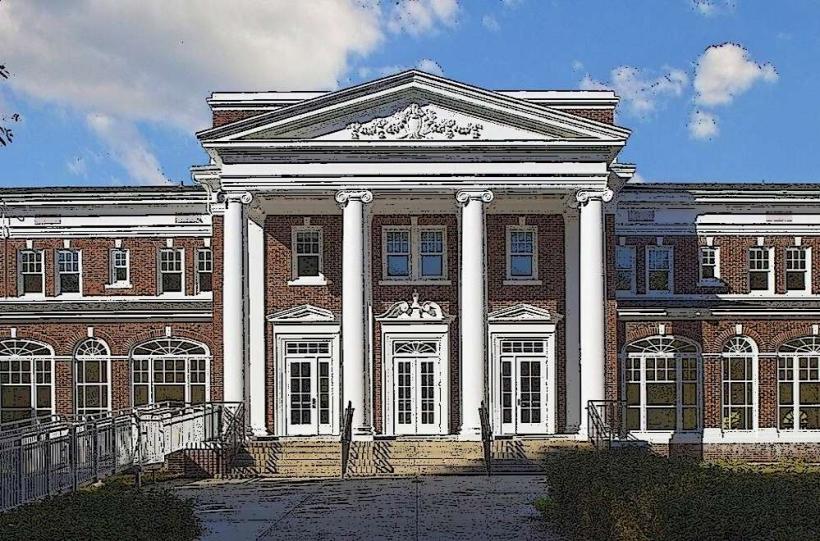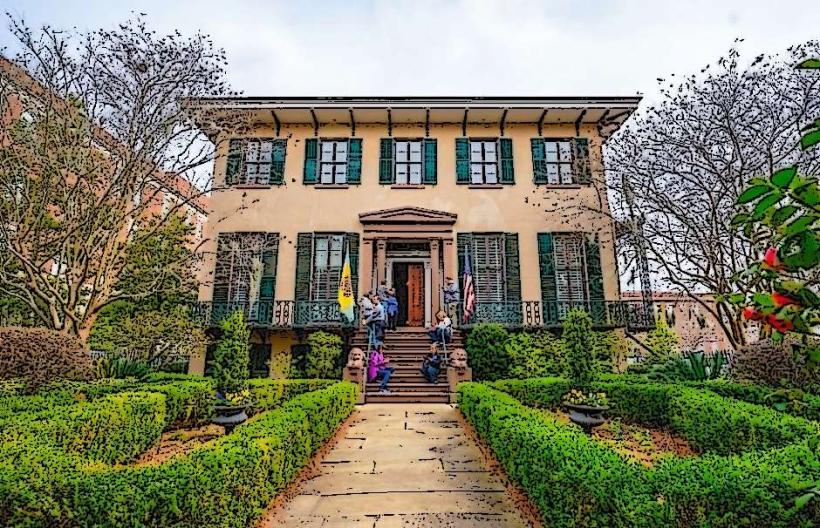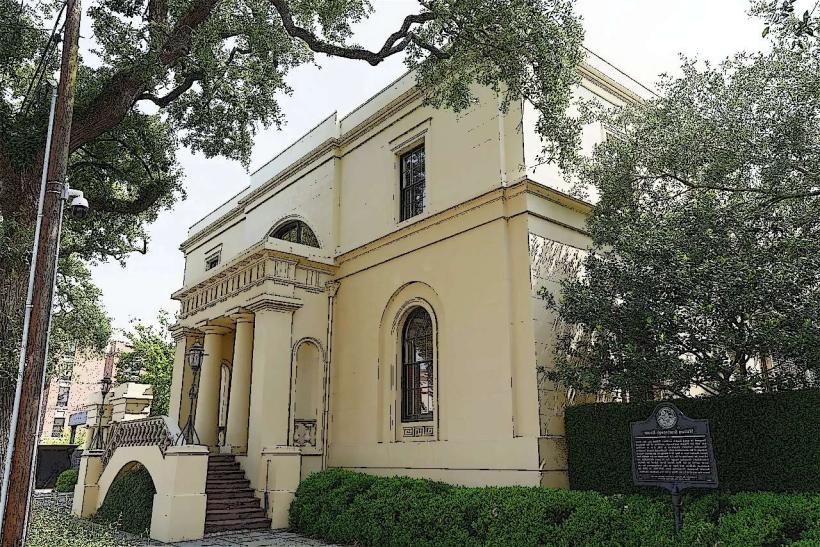Information
Landmark: Ralph Mark Gilbert Civil Rights MuseumCity: Savannah
Country: USA Georgia
Continent: North America
Ralph Mark Gilbert Civil Rights Museum, Savannah, USA Georgia, North America
The Ralph Mark Gilbert Civil Rights Museum is located in Savannah, Georgia, USA. It documents the history of the Civil Rights Movement in Savannah and the surrounding coastal region.
Visual Characteristics
The museum is housed in the historic First African Baptist Church building, constructed from brick. The building features a rectangular footprint with a prominent steeple. Its exterior is painted a light color, contrasting with darker trim around windows and doors. The architectural style is indicative of late 19th-century ecclesiastical design.
Location & Access Logistics
The museum is situated at 460 Martin Luther King Jr. Boulevard, Savannah, GA 31401. This location is approximately 1.5km southwest of the Savannah City Hall. On-street parking is available in the vicinity, though availability can vary. Public transport options include the Chatham Area Transit (CAT) bus system; routes 14 and 20 stop within a 0.2km radius of the museum.
Historical & Ecological Origin
The building that houses the museum was constructed in 1859 and served as the First African Baptist Church, one of the oldest African American congregations in the United States. Its original purpose was as a place of worship and community gathering for the African American population of Savannah. The museum itself was established to preserve and present the history of the Civil Rights Movement in the region.
Key Highlights & Activities
Exhibits focus on local activism, key figures, and significant events of the Civil Rights era in Savannah. Visitors can view historical documents, photographs, and artifacts. Educational programs and lectures are sometimes offered. The museum provides context for the broader national movement through a regional lens.
Infrastructure & Amenities
Restrooms are available on-site. Limited seating is provided within exhibit areas. Cell phone signal (4G/5G) is generally reliable within the museum. No on-site food vendors are present, but numerous dining establishments are located within a 0.5km radius in the downtown area.
Best Time to Visit
The museum is open Tuesday through Saturday. For optimal viewing of exhibits without crowds, visiting during weekday mornings is recommended. Lighting within the museum is controlled for artifact preservation, making specific times of day less critical for photography.
Facts & Legends
The First African Baptist Church congregation predates the current building, with its origins tracing back to 1773. A notable historical detail is that the church served as a meeting point for civil rights organizers during the 1950s and 1960s, directly linking its historical function to the museum's current purpose.
Nearby Landmarks
- 0.5km Northeast: Savannah City Hall
- 0.8km Northeast: River Street
- 1.2km Northeast: Forsyth Park
- 1.5km Northeast: Cathedral of St. John the Baptist

